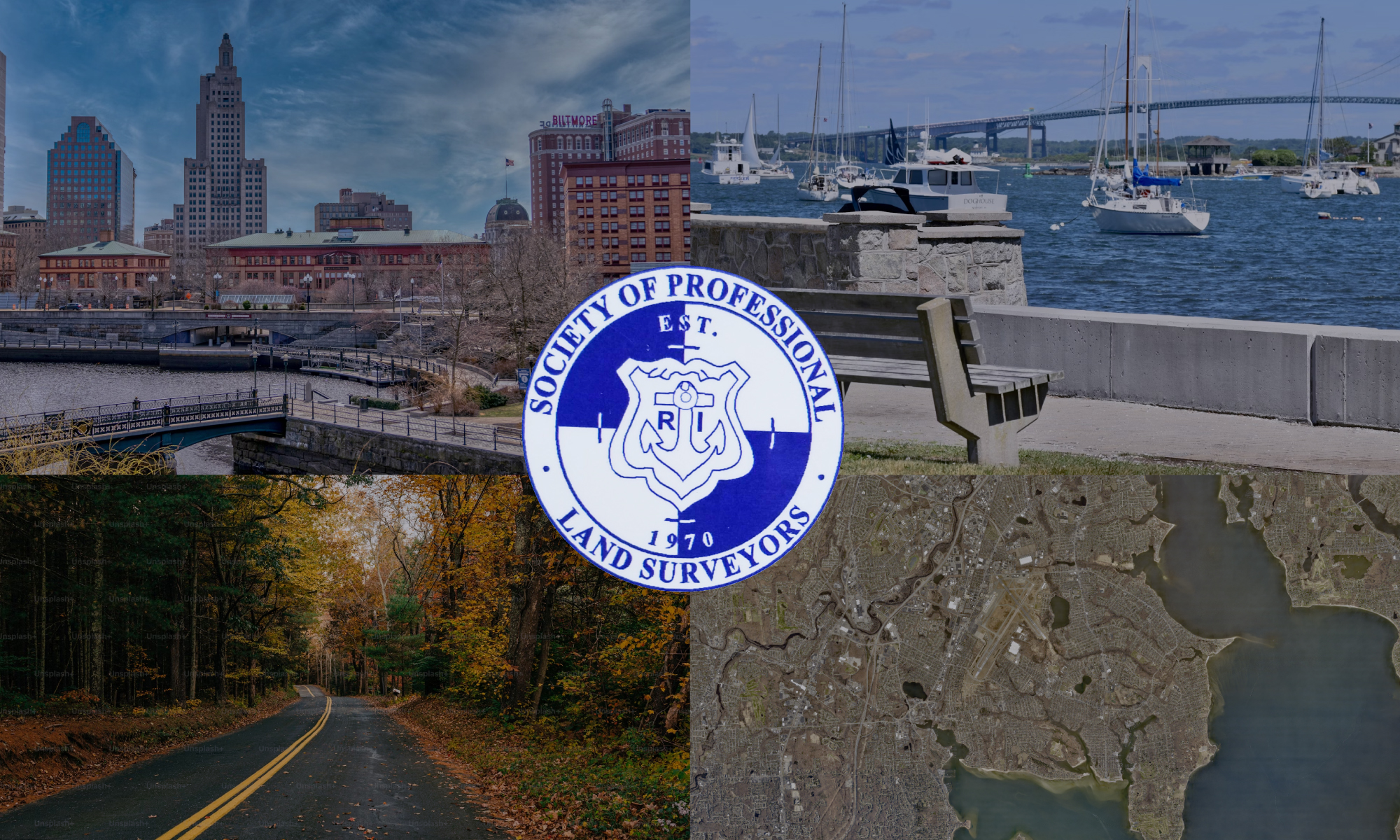THE HISTORY OF THE RHODE ISLAND SOCIETY OF PROFESSIONAL LAND SURVEYORS
In December, 1970 a small group of land surveyors got together at the Governor Dyer Restaurant in Providence to start a discussion. Attending that meeting were Ken Anthony, Tony Caputo, Robert Curran, and Pierre Guillemette.
The discussion centered around the needs of the typical practicing land surveyor. At the top of their list was a need for a means where land surveyors, from all parts of the State, could interface with one another and compare common needs for a professional practice.
A meeting held at Camille’s Roman Garden one month later enlisted the additional help of Armando Gama, Leonard Garofalo, Earl Marsh, Patrick McCormick and Elson Stanley. These nine people, formed the Committee to form the “Association of Rhode Island Land Surveyors”. This name was changed to the “Rhode Island Society of Professional Land Surveyors” (RISPLS) at the first “Official” meeting, held March 30, 1971, at the Governor Dyer Restaurant. Fifty-eight persons attended that first meeting, elected officers and directors, and commented on the current state of affairs of land surveying in Rhode Island.
Issues that brought this Society together are similar to needs currently expressed as important by practicing land surveyors. Foremost was a need for a minimum standard of practice. Up until this time, practicing land surveyors obtained their expertise from many different sources and as a consequence confusion developed as to the “proper” practice of land surveying. Other issues considered were a concern over the promulgation of the Department of Environmental Management’s (DEM) “Freshwater Wetlands” bill and the Health Department’s new regulations for sewage disposal systems.
During 1971, “By-Laws” were prepared and established as the way in which RISPLS would be organized and respond to the land surveyors needs. Throughout the By-Laws, a major concern was the formulation of the need to supply the public with a consistent, professional service.
The specific purpose of RISPLS was given in four parts. First was a statement that land surveying was to be recognized as a separate and distinct profession, secondly that RISPLS was to establish and maintain a standard of practice and ethics for protection of the public. The third purpose listed established a commitment to the advancement of our professional, economic and social interests. The fourth and final purpose made it clear that education would play a major role in making the first three goals possible, and recommended scholarships and other incentives to make formal education in land surveying desirable.
During the following years, steps were taken to offer the Rhode Island practicing land surveyor services and information that would better prepare those land surveyors to serve the public in a professional and informative manner.
During 1974 and 1975, efforts towards establishing education programs were culminated in starting a night course at Davies Vocational School in Lincoln to train entry-level technicians. Continuing education programs became a priority and RISPLS started holding seminars and work sessions on topics that varied from the Legal aspects of land surveying to what DEM expected of our services.
A night course in practical land surveying, taught by our late Pierre Guillemette, was started at Rhode Island Community College. In 1989, Chariho Vocational School started a program in their curriculum including land surveying and the University of Maine at Orono started a “Surveying Engineering” course, dedicated to land surveying. RISPLS members were a major force in getting these programs started.
More recently, RISPLS has striven to maintain and advance the land surveyors image as a separate and distinct profession by responding to legislation that in 1992 formed a Board of Registration for Land Surveyors comprised of land surveyors. We are now in the process of defining our professional activities in a manner in which that Board may keep a tight rein on land surveying professionals and in doing so develop an atmosphere of permanence to our services that will continue on into the next generation.


